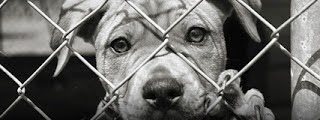

| Online: | |
| Visits: | |
| Stories: |

| Story Views | |
| Now: | |
| Last Hour: | |
| Last 24 Hours: | |
| Total: | |
The Hound In The Kennel
It is an essential aspect of growing up that we suppress who we really are in order to be accepted and loved by mum and dad. This means we actually push our real needs away in order to cope with their demands. It is as if we have sacrificed our original selves to get their love, and it leaves a trail of sorrow.
We call it Existential Grief because it’s about our very existence. It is about us being ’socialized’ by the family and school so that we forget who we truly are. This leaves an enormous grief that is too difficult to confront, and we hide it in the kennel of the unconscious, leaving the howls from the kennel to undermine our self-confidence.
In our society we use material goods and social roles to cover up the black hole of grief. By surrounding ourselves with pretty and expensive things we tell everyone else that we are really OK. This is, so I learn from my clients, the major cause of going shopping, going on buying sprees and being consumers. We have come to believe that bright new things will fill the empty spaces inside. This seems to be why we cannot really confront the devil of global warming that is being fed by every dollar we spend. For our own safety as a species we should all be consuming less and sharing more and striving to make life simple, whereas we are literally hell-bent on getting the most while we still can.
The hound sitting in the kennel of our emptiness makes it too hard for us to look at the truth and change our ways. We cannot alter the terminal path we are on, because to do so would expose our deepest fears that underneath all the tinsel and stuff we really are not worth much at all. Not even the protection we should be giving to our beautiful children is enough to move us to confront this terrifying personal fear.
A four-year analysis of the world’s ecosystems sponsored by the Worldwatch Institute found that over-consumption has pushed 15 out of 24 ecosystems essential to human life “beyond their sustainable limits”. Our insatiable desire for more is moving the planet toward a state of collapse that may be “abrupt and potentially irreversible”. Since we all know that, can we not go beyond the fear to follow David Attenborough, who said in an interview, “How could I look my grandchildren in the eye and say I knew and did nothing?”
Source: http://coyoteprime-runningcauseicantfly.blogspot.com/2017/03/the-hound-in-kennel.html



